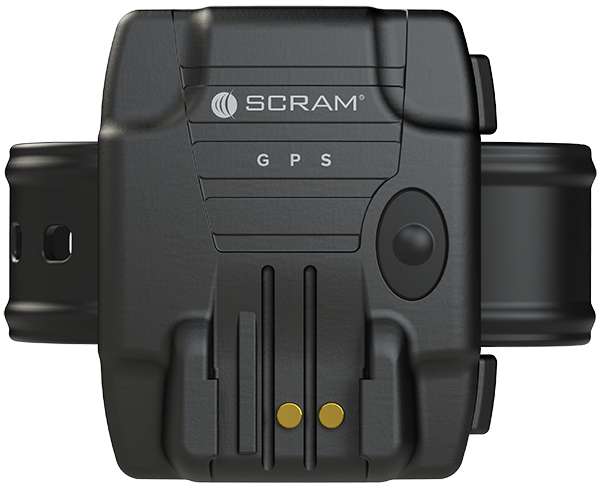SCRAM GPS Monitoring Devices
Judges can order GPS monitoring for defendants who are released on bond or serving a sentence, or as a sanction for treatment to court participants. Also enforced on monitoring are strict restrictions, including house arrest, a curfew or exclusion zones.
SCRAM GPS combines superior location accuracy, an industry-leading strap design, long battery life, and user-friendly software tools that help officers quickly identify and address issues in their caseload. For high-risk offenders requiring around-the-clock location monitoring, SCRAM GPS offers revolutionary tamper technology that virtually eliminates false alerts and provides nearly instant notifications, so officers can act quickly. SCRAM GPS provides superior location monitoring for sex and violent offenders and domestic violence caseloads. Additionally, GPS location monitoring is an effective alternative to incarceration for community corrections, helping officers more effectively supervise clients while enhancing community safety.

Instant Access to Client Travel Details
With Google Maps and Google Info windows built into the SCRAM GPS monitoring software, officers can quickly identify a client’s exact location and easily put client movements into context. Watch the video below to learn more about SCRAM GPS monitoring.
Spend Less Time in Jail
Jail is the last place that anyone wants to spend any more time than they have to. Many have stated that the experience of being in jail in the first place completely changed them and made them view the world in entirely new ways. Any person charged with a crime will immediately want to ask for bail to get out of jail and fight their case from the safety and comfort of their own home.
Interestingly, the court system uses GPS monitoring as a tool of both negotiation and for keeping tabs on defendants that come before it. In some cases, a judge may order GPS ankle bracelet monitoring as part of an agreement to allow bail for a defendant who may be considered something of a flight risk. The court may also rule it necessary to monitor those that have been sentenced for a particular crime. That is what happened in this case out of Utah:
"Judge Darold McDade ordered Javier to serve 120 days in prison and pay back a total of $124,915 to his victims, $25,000 of which must be paid back within 75 days. However, rather than send him behind bars, the Judged agreed to have him serve his via GPS monitoring so he can work to pay his restitution."
This case involved a man who had sold cars that he did not possess the title to. His unsuspecting victims were essentially scammed out of their money, and Javier was eventually caught. The judge saw fit to require a GPS monitoring system be applied because the state of Utah has an interest in knowing where this particular individual is at all times to make sure he is working to repay his victims.

